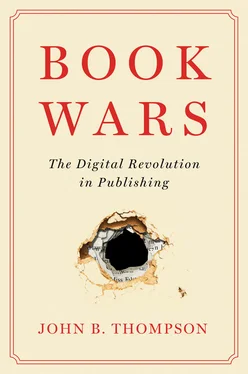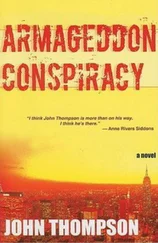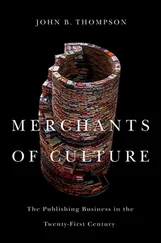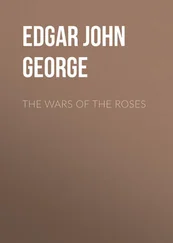With fiction, however, it was a different matter. At the same time as Tom was developing his series in long-form journalism, colleagues in one of the commercial divisions of Mansion House were developing plans to release short stories as digital-only ebooks by some of their brand-name fiction writers. The idea was to go to their brand authors whose books sell hundreds of thousands of copies – crime thriller authors, for example – and ask them to write a short story, between 7,500 and 10,000 words, preferably a kind of prequel or spin-off that touches on the theme of their forthcoming book; they would add a preview of the new book that would link to a pre-order. The story would be released a few months before the publication of the new novel and sold at a low price, between 99p and £1.99, marketed to the fans and used as a way to stimulate interest in the forthcoming book. ‘As a type of monetized marketing, it’s an extremely effective strategy’, said Tom. ‘You’ll sell over 100,000 of these stories and you get the pre-order. You see the pre-order numbers triple.’ It’s a win-win situation: you’re generating a significant new revenue stream that wouldn’t have existed in the world of print and, at the same time, you’re priming the pump for the new novel, generating pre-orders that will eventually translate into increased sales of the book.
Other publishing houses carried out similar experiments with digital shorts in the early 2010s, with roughly similar results. Clearly, there was a market for short books published as ebooks only and priced very cheaply – books that, in most cases, simply would not have existed in the world of print, since, at 7,500–10,000 words, they were too short to be published as a printed book in English. 2Might this be the basis for a new kind of publishing – a new publishing venture that could be built on the digital short?
This is an idea that had been gestating in the mind of John Tayman since late 2006 and early 2007. John was a writer, not a publisher, and he was frustrated by the fact that a conventional nonfiction book typically took several years to research and write. He had been a magazine editor at an earlier stage of his career, so he was accustomed to keeping a folder of interesting ideas that could be developed, but most of these ideas fell into a kind of literary no man’s land: they were too complicated for a short magazine article but they didn’t merit the time, commitment or extent of a full-length book. John was also a heavy reader, but many of the books he bought and stacked up on his nightstand were books that he never read: reading a book was a seven- or eight- or ten-day commitment, and he simply didn’t have the time to read them all. He began to think: ‘I would like a story that I could digest more quickly than that. I would like a reading experience that maps to the experience that I have when I go to the movies. I want to consume a story – start, middle, finish – in one sitting. That’s when the germ of Byliner started coming up.’
It was too early, however: this was late 2006, early 2007, the Kindle hadn’t been launched and the iPad was still three years off. There was no way of getting short stories of this kind in front of readers – the discovery and distribution systems just didn’t exist. So John put the idea on the back burner while he worked on other things. In November 2007, the Kindle came out, but the Kindle was a closed loop and that didn’t seem like the best way to go. When the first versions of the iPad appeared in early 2010, John decided that the timing was right and he began putting together a prototype. He started talking to authors, friends and investors, secured seed funding and then several phases of additional funding – he brought in almost $11 million of venture capital (VC) funding in total. One of the writers he was talking to said he had a project that was not well served by his book publisher or his magazine publisher and was actually perfect for this thing that lives in between the two. So they put that together and published this title as their first book, before the whole platform had been established. This was Jon Krakauer’s Three Cups of Deceit – a hard-hitting, 22,000-word exposé of the misrepresentations and literary fabrications that pervade Greg Mortenson’s account of self-transformation and philanthropy in his bestselling memoir Three Cups of Tea . The timing couldn’t have been better: the ebook was published a day after a 60 Minutes documentary on Mortenson aired on CBS on 17 April 2011, and it was made available as a free download for 72 hours. In those first 3 days, 75,000 copies were downloaded. This was far in excess of what John had allowed himself to hope for and it augured well for the future of Byliner. With this auspicious start, Byliner was looking like a project that could turn out to be a great success.
For the next year, John and his colleagues worked hard to ramp up Byliner’s output and make sure their books were available through the major ebook retailers, especially Amazon, Apple, Barnes & Noble and Kobo, all of whom opened special sections of their bookstores dedicated to short ebooks that could be read in a single sitting. Byliner pioneered the space of what John preferred to call ‘e-singles’ – short books, between 5,000 and 30,000 words, that could be written quickly and read quickly, published as ebooks only. That was the original concept of the e-single, as John explained: ‘We wanted to allow authors to publish a book that could be on and off their desks as writers in a month or two rather than a year or two, and as a reader, it could be on and off my nightstand in an evening or an afternoon.’ John used the VC funds to take on staff – three people to begin with, two in editorial and operations and one in technology, and then, as they published more books, built out the platform and began to do marketing and other things, the team grew to around twenty people in total. They aimed to publish one book a week, though that proved to be a little too ambitious and they eventually settled into a pattern of one book every ten days to two weeks. Authors were given a straight 50:50 split on net receipts – that is, after 30 per cent of the sale price had been taken by the vendor. They also paid authors an ‘assignment fee’ (a term they preferred to ‘advance’ – ‘we tried not to use traditional publishing nomenclature’) that ranged from 0 to $3–5,000; the highest they ever paid was $20,000, though that was exceptional. ‘We did an extraordinarily good job of acquiring the very best authors and of publishing great books’, said John; ‘I think we had 32 bestsellers in our first year.’ Their authors included many established writers, such as Margaret Atwood, Nick Hornby, Ann Patchett, Jodi Picoult, Chuck Palahniuk, Richard Russo and Amy Tan. They eventually shifted 160,000 copies of Three Cups of Deceit , and they had several titles that outsold this.
In 2011, this innovative new venture in digital publishing seemed to have a bright future with everything going for it. E-singles ‘are the format of our time’, purred technology reporter Laura Owen; they ‘fit perfectly with the curl-up-with-your-iPad phenomenon. They’re long enough that you don’t blow through them in ten minutes, but most can be read in under an hour.’ 3But three years after it launched with its stunning debut success, Byliner was in trouble. Sales were static, margins were being squeezed and managers were looking for ways to cut costs. The dream was over. What went wrong?
There were two main factors, in John’s view, that undermined Byliner. On the one hand, the marketplace became flooded with e-singles. A form that Byliner had pioneered was quickly taken up by others and the quantity of e-singles increased exponentially, but much of this escalating output was of rather uneven quality. ‘The signal-to-noise ratio moved in the wrong direction’, and consumers stopped going to those sections of the ebook retailers that were dedicated to e-singles. On the other hand, prices plummeted. Byliner had been pricing their ebooks between $2.99 and $4.99, but there was tremendous pressure in the marketplace, and especially from Amazon, to drive the price of e-singles down to 99¢. ‘When Amazon came out they set hard limits on what you could price at’, explained John. ‘It had to fall between 99¢ and $4.99. We always wanted to price towards the higher end, in part to signal quality and also because we thought our authors didn’t want their work associated with 99¢. We were in continual fights with Amazon about that.’ But it was difficult to resist the downward pressure on prices when so much of what was being published in the e-singles category was priced at 99¢. With the flooding of the market, the decline of consumer activity in the e-singles stores and the intense downward pressure on prices, the numbers just stopped working: ‘You had to move so many units at 99¢ and then, once you’d carved out 30 per cent for the vendors, it just didn’t work.’
Читать дальше












